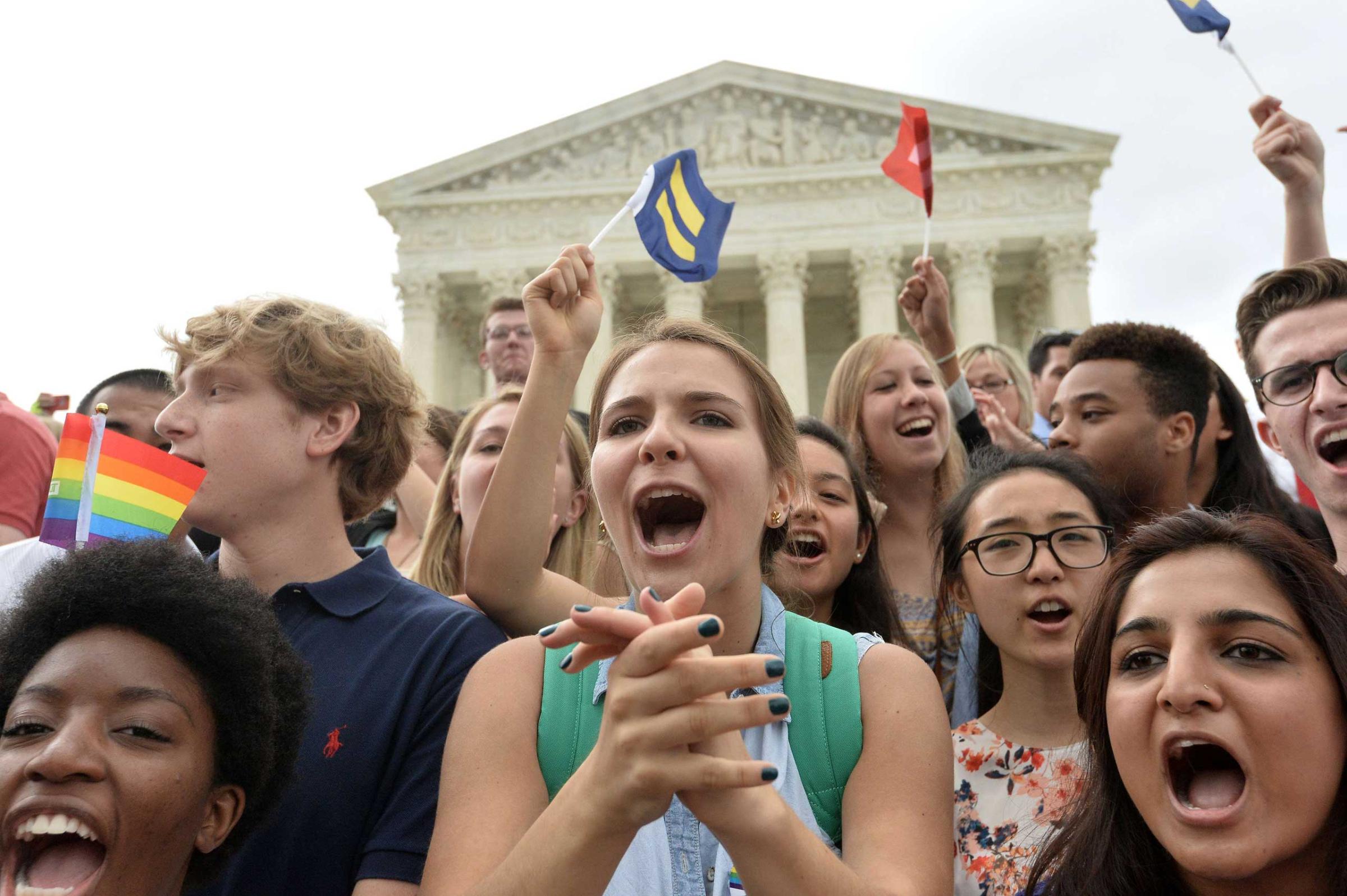Justice Antonin Scalia told his Supreme Court colleagues that their legal reasoning in the court’s 5-4 ruling that states must license same-sex marriage and recognize similar unions from other states didn’t rise above the level of wisdom delivered to dinners at the end of a Chinese meal.
“The Supreme Court of the United States has descended from the disciplined legal reasoning of John Marshall and Joseph Story to the mystical aphorisms of the fortune cookie,” he wrote in his dissent to the court’s decision which effectively ended a long legal battle over marriage rights.
“The opinion,” Scalia wrote elsewhere of the majority’s reasoning, “is couched in a style that is as pretentious as its content is egotistic.”
(Scalia appeared to be referencing one of the very first lines of the majority opinion, which notes that Confucius—long a staple of fortune cookie quotations—taught “that marriage lies at the foundation of government.”)
The conservative justice criticized his colleagues for thwarting democracy by ending the debate taken places in state legislatures and at the ballot box throughout the United States over marriage rights: “What really astounds,” Scalia wrote, “is the hubris reflected in today’s judicial Putsch.”
He told his colleagues that their backgrounds make them “strikingly unrepresentative” of the American people: “This Court, which consists of only nine men and women, all of them successful lawyers who studied at Harvard or Yale Law School. Four of the nine are natives of New York City. Eight of them grew up in east- and west-coast States. Only one hails from the vast expanse in-between. Not a single Southwesterner or even, to tell the truth, a genuine Westerner (California does not count). Not a single evangelical Christian (a group that comprises about one quarter of Americans), or even a Protestant of any denomination.”
Finally, Scalia warned that the ruling to extend marriage rights to gay couples across the country would rob the court of its power: “Hubris is sometimes defined as o’erweening pride; and pride, we know, goeth before a fall. The Judiciary is the “least dangerous” of the federal branches because it has “neither Force nor Will, but merely judgment; and must ultimately depend upon the aid of the executive arm” and the States, “even for the efficacy of its judgments.”
With each decision of ours that takes from the People a question properly left to them—with each decision that is unabashedly based not on law, but on the “reasoned judgment” of a bare majority of this Court—we move one step closer to being reminded of our impotence.
See Scenes of Celebration After Supreme Court Gay Marriage Ruling








More Must-Reads From TIME
- The 100 Most Influential People of 2024
- Coco Gauff Is Playing for Herself Now
- Scenes From Pro-Palestinian Encampments Across U.S. Universities
- 6 Compliments That Land Every Time
- If You're Dating Right Now , You're Brave: Column
- The AI That Could Heal a Divided Internet
- Fallout Is a Brilliant Model for the Future of Video Game Adaptations
- Want Weekly Recs on What to Watch, Read, and More? Sign Up for Worth Your Time
Write to Sam Jacobs at sam.jacobs@time.com